Turkey: The fragile republic without democracy
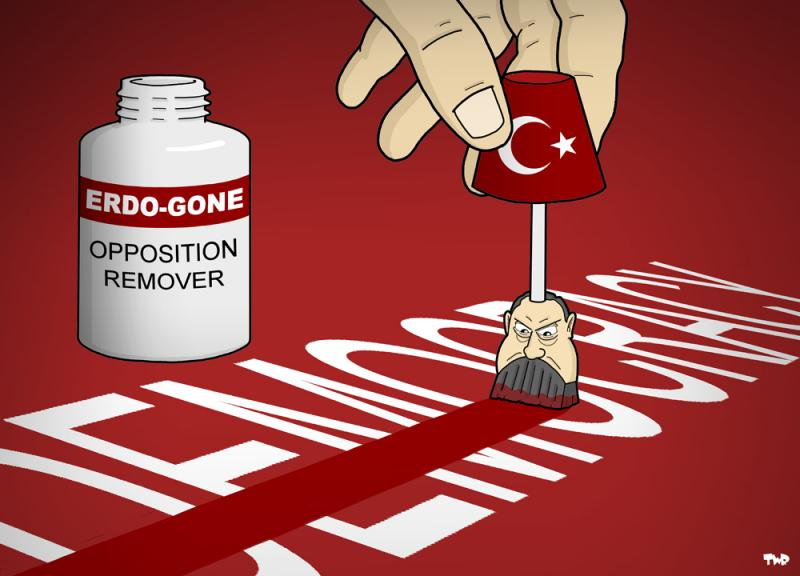
2022 has been a tough year for politicians, with inflation going up and living standards going down. Most incumbents have seen their poll numbers decline, and those unfortunate enough to face the electorate have, in most cases, been kicked out of office. Turkey is no different in this respect. Inflation rose to a 25-year high of 85% in October, in large part thanks to Erdogan's unorthodox monetary policy, and Erdogan's poll numbers have sharply declined. Unsurprisingly, Erdogan isn't going down without a fight, and he's reacted to the pressure by taking increasingly jingoistic foreign policy positions and jailing his political opponents. In this article, we thought we'd take a look at: 1) how Erdogan fell out of favor with the Turkish electorate; 2) his attempts to hold on to power; and 3) whether, if things continue in this vein, Turkey's democracy can survive the 2023 elections.
In some sense, Erdogan's decline was inevitable as foreign policy fell out of favor with the Turkish electorate. While he was genuinely a very popular politician in his heyday, generally politicians get less popular over time, and Erdogan has been in power for the better part of two decades. However, in the last year or so, Erdogan's decline has been accelerated by his mismanagement of the Turkish economy. Essentially, in part because Turkey's economy relies quite heavily on imports, the country's inflation rate has surged over the last year or so. Usually, central banks hike rates to reduce inflation, but Erdogan thinks this idea is a conspiracy advanced by the so-called interest rate lobby and instead decided to cut rates and fire any central banker who dared to disagree with him. Accordingly, the central bank has cut rates from 19% in March 2021 to 10.5% today, and as orthodox economists would have predicted, you-know-what has jumped from 20% to 85.5% in the last 12 months. This is the highest inflation rate seen in Turkey since Erdogan came to power 20 years ago, when, somewhat ironically, he promised to bring down inflation from its crazy highs of the 1990s.
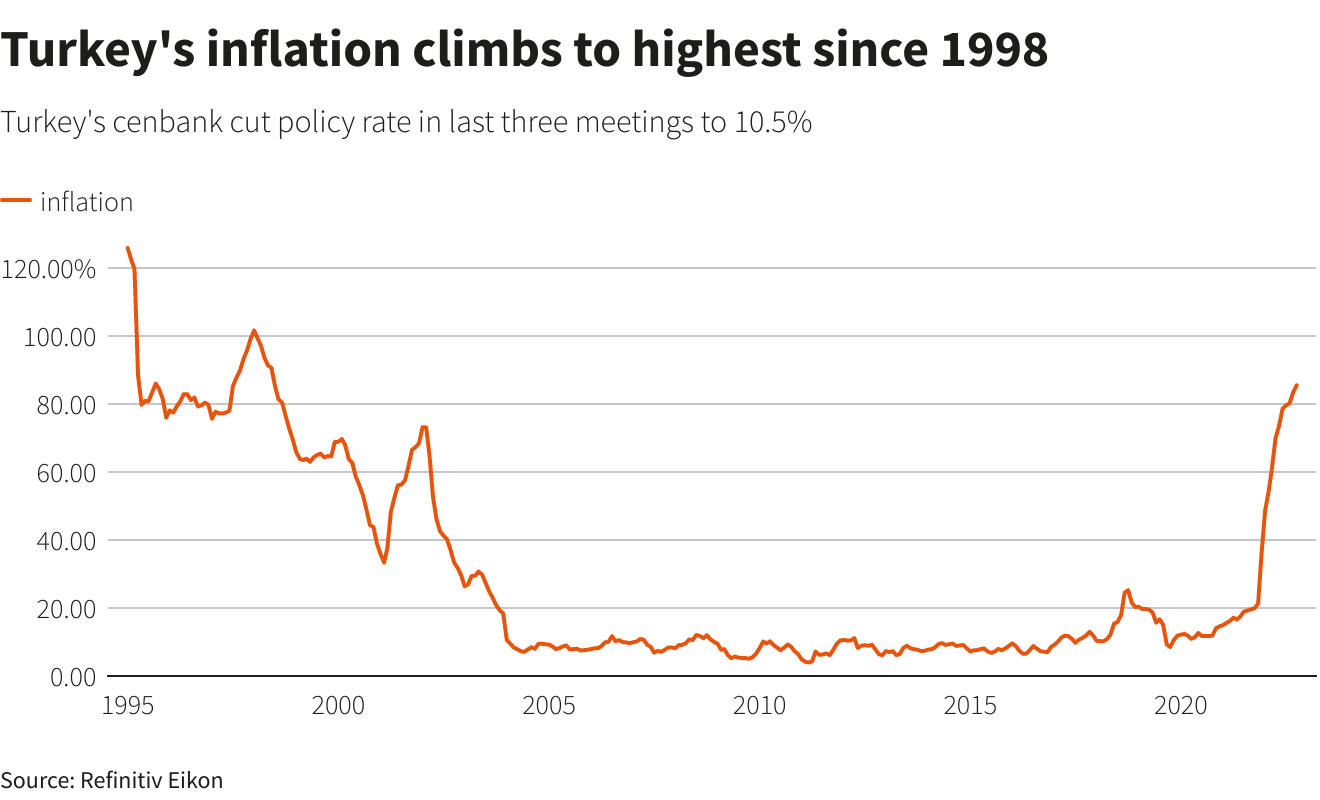
While this might sound bad, unofficial estimates suggest things are even worse than the Turkish Statistical Institute is admitting. A separate index that measures inflation in Istanbul, compiled by the city's Chamber of Commerce, put it at 107 percent, while another unofficial index developed by the independent inflation research group put it at 185 percent. Apparently undeterred, Erdogan has said he wants to continue cutting rates and plans to get them down into the single digits by the end of the year. While Turkey's GDP has apparently held up relatively well, inflation has eaten away at ordinary Turks' living standards. The Turkish economy grew by 11% in 2021 and is forecast to grow by 7% in 2022, but these impressive GDP figures don't reflect the economic reality for most ordinary Turks. Growth has been driven by strong exports enabled by a weak currency and a desperate consumption binge by Turkish households, who have realized that they need to spend their lira before it becomes worthless. Despite successive minimum wage increases, wages are still way behind inflation, and the vast majority of Turks have seen a steep decline in their living standards.
Accordingly, Erdogan's poll ratings have fallen to an all-time low. The gap between his AKP party and the main opposition party, the CHP, has narrowed significantly in the past year, and he is at serious risk of losing his parliamentary majority in the 2023 elections. While the opposition hasn't decided on its candidate, the most recent polling for the presidential election, which will happen alongside the parliamentary elections in June, suggests that Erdogan is currently behind all three of the most likely candidates: Kemal Klçdarolu, the 73-year-old leader of the CHP; Mansur Yavas, the mayor of Ankara; and Ekrem Imamoglu, the mayor of Istanbul.
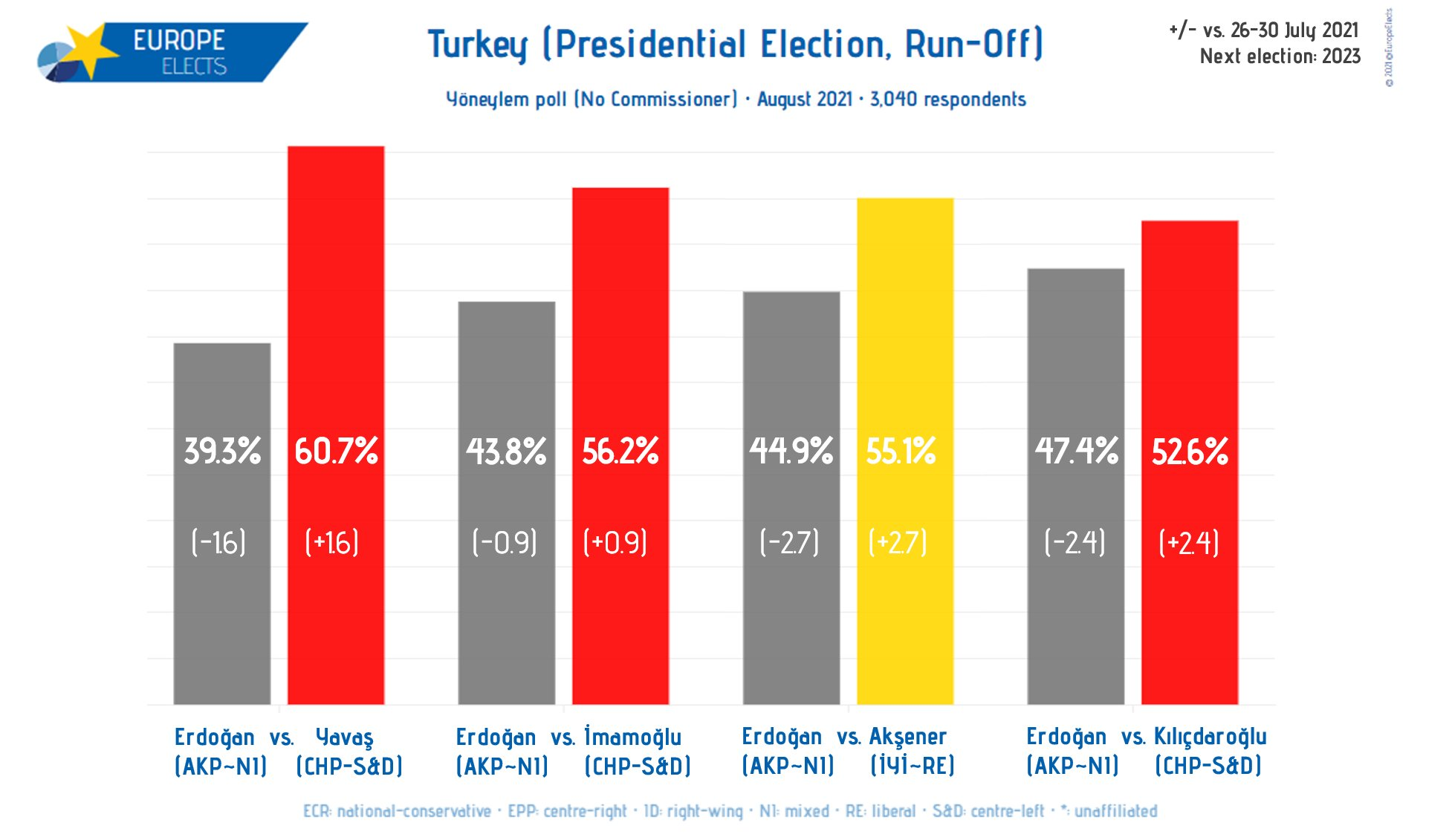
According to the most recent polling, the most popular of these candidates is Yavas, who currently enjoys a 20-point lead over Erdogan. In second place is Imamoglu, who has an eight-point lead but an impressive track record against AKP candidates. You might remember him from 2019, when he was narrowly elected mayor of Istanbul. Upset by the result, Erdogan canceled the results of the election, only for Imamoglu to win by a landslide the second time around. In third place is Kilicdaroglu, who is basically level with Erdogan in the polls. Kilicdaroglu is essentially a distinguished elder statesman who has lost every previous election. Kilicdaroglu is apparently reluctant to step aside, but if he eventually acquiesces and hands over the mantle to either Yavas or Imamoglu, polling suggests they would almost definitely become Turkey's next president.
Unfortunately for Turkey's democracy, Erdogan isn't going down without a fight. Last week, a Turkish court packed with AKP loyalists sentenced Imamoglu to more than two years in prison and banned him from politics for calling members of the Turkish Supreme Election Council fools in the aftermath of his controversial 2019 mayoral victory. While Imamoglu is expected to appeal the ruling, the ensuing court case could still block him from running in 2023. This isn't the first time Erdogan and the AKP have instrumentalized the judiciary to protect the president. A court packed with AKP loyalists sentenced Imamoglu to more than two years in prison and banned him from politics for calling members of the Turkish Supreme Election Council fools in the aftermath of his controversial 2019 mayoral victory. While Imamoglu is expected to appeal the ruling, the ensuing court case could still block him from running in 2023. This isn't the first time Erdogan and the AKP have instrumentalized the judiciary to protect the president. The head of the CHP's Istanbul branch was banned from politics and given a suspended five-year prison sentence for accusing Erdogan of theft in a tweet. In January, the courts are due to rule on potentially banning the Kurdish-majority HDP party from politics, which is currently polling at about 10 percent. As well as instrumentalizing the judiciary, Erdogan has also tried to shift the electorate's attention away from domestic economic issues and towards foreign policy by taking increasingly hawkish stances.
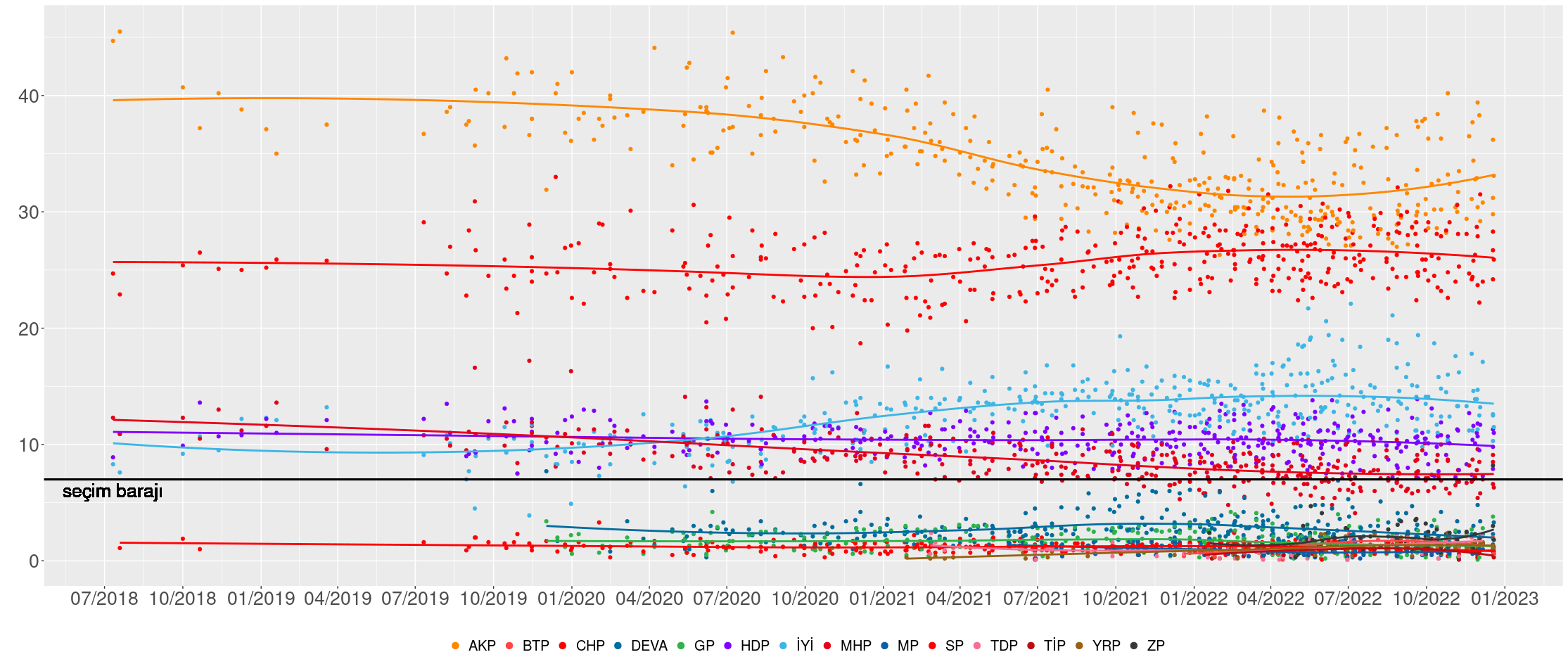
Presumably, in an attempt to out-patriot his opponents, take, for instance, the rhetoric that Erdogan has employed against Greece in the last few months. In a speech on Sunday, December 11th, Erdogan warned that Turkish-made Typhon missiles could strike Athens unless the Greeks "remain calm." A week before, Erdogan's foreign minister warned that if Greece didn't stop allegedly militarizing the Aegean Islands, the Turkish military would "take the necessary steps on the ground." Erdogan's looming invasion of Syria should be understood in a similar light. While Erdogan is legitimately concerned about Syrian-inspired Kurdish separatism in Turkey, and while Russia's relative withdrawal from the region has created an exploitable vacuum, his potential invasion is primarily an attempt to refocus the election on foreign policy and the issue of Kurdish separatism.
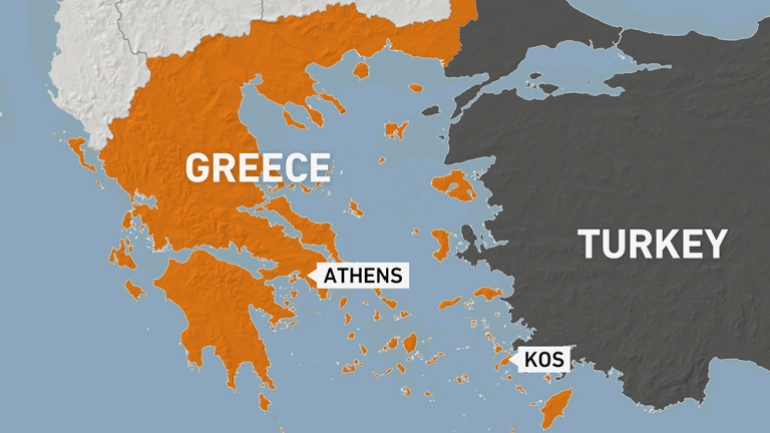
Anyway, you get the idea: Erdogan is losing in the polls, and he's reacted by trying to jail his political opponents and upping the ante on foreign policy issues. This doesn't bode well for Turkish democracy, especially because all the signs suggest that things are about to get worse. Inflation shows no sign of slowing down, and if anything, Turkey's economic situation will probably get worse before it gets better. This is because Turkey's recent growth spurt was driven by consumption and exports, but as inflation eats away at Turkish savings, consumption will dry up, and the global economic slowdown will reduce demand for Turkish exports.
JP Morgan now forecasts a two percent contraction in Q3 and zero growth in Q4, while the ING Group expects a further 1.8% contraction in the first quarter of 2023. This is pretty worrying news, because if recent history is anything to go by, more bad news for Erdogan will only mean more desperate attempts to cling onto power. All in all, it looks like 2023 could be the make-or-break year for Turkish democracy.
Sources:
election polls: https://tr.wikipedia.org/wiki/%C3%9Clke_%C3%A7ap%C4%B1nda_2023_T%C3%BCrkiye_genel_se%C3%A7imleri_i%C3%A7in_yap%C4%B1lan_anketler
news: https://www.ft.com/content/12b41e69-fb77-4015-87dc-ab6ca101576f
inflation: https://enagrup.org/
https://bilgibankasi.ito.org.tr/tr/istatistik-verileri/genel
yoneylem election poll: https://europeelects.eu/turkiye/
imamoglu politics ban: https://www.ft.com/content/710bff84-db73-4785-8386-0bf34e3b8da8?shareType=nongift
Economic look-up: https://capital.com/turkey-recession-growth-inflation
Turkey-Greec relations: https://www.politico.eu/article/erdogan-warns-greece-that-turkish-missiles-can-reach-athens%EF%BF%BC/





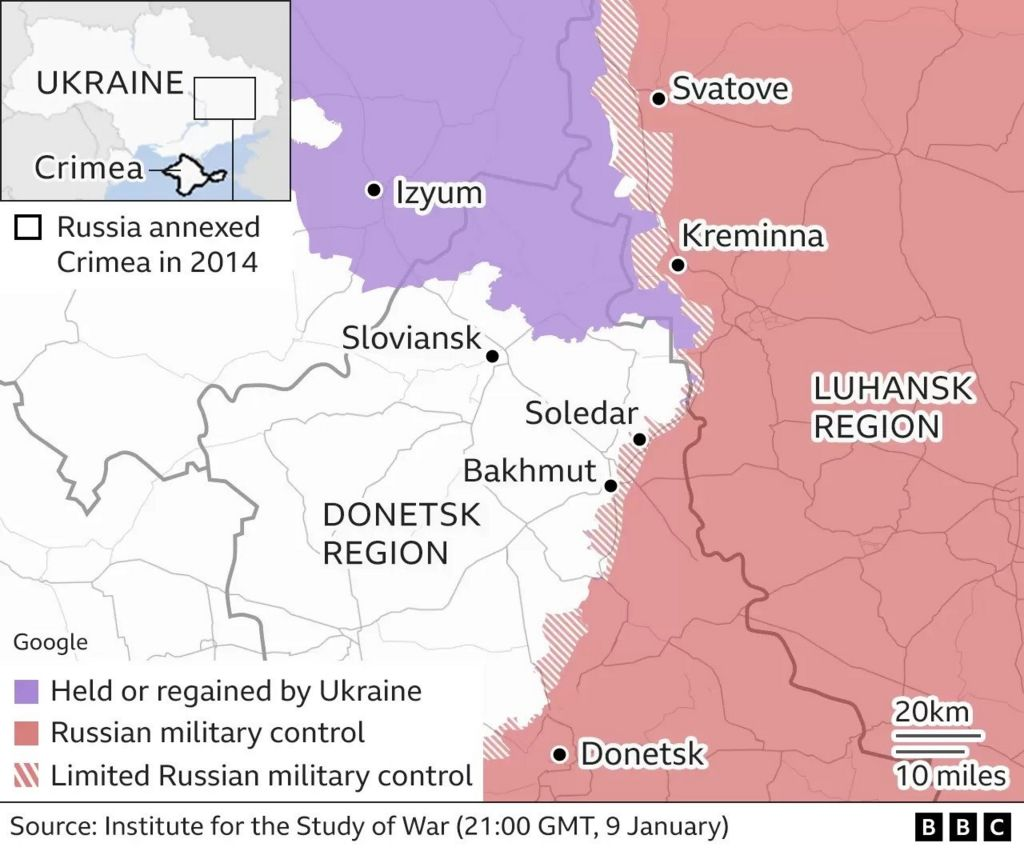


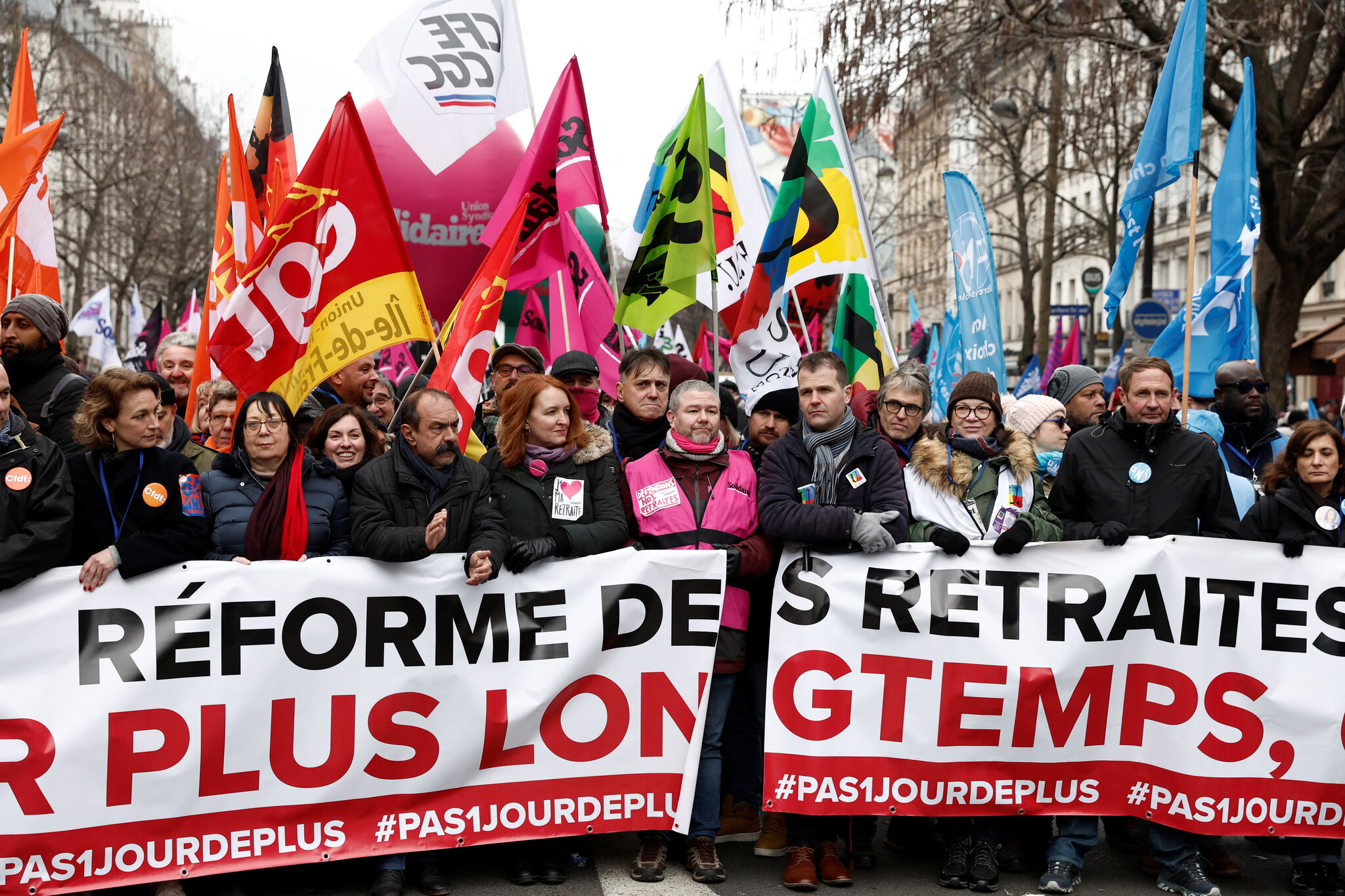
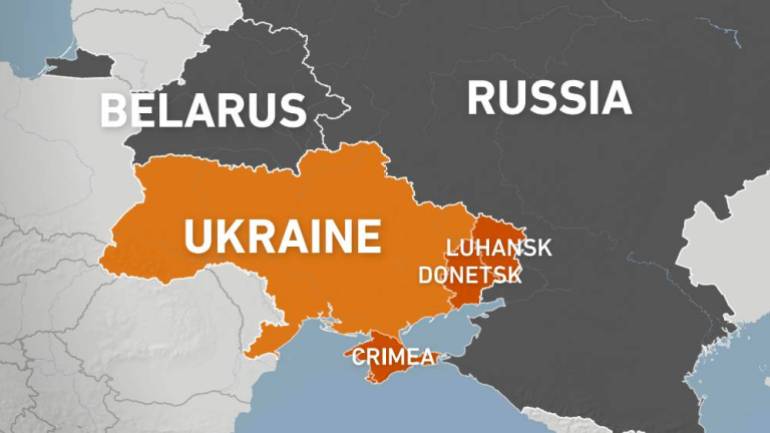
Comments